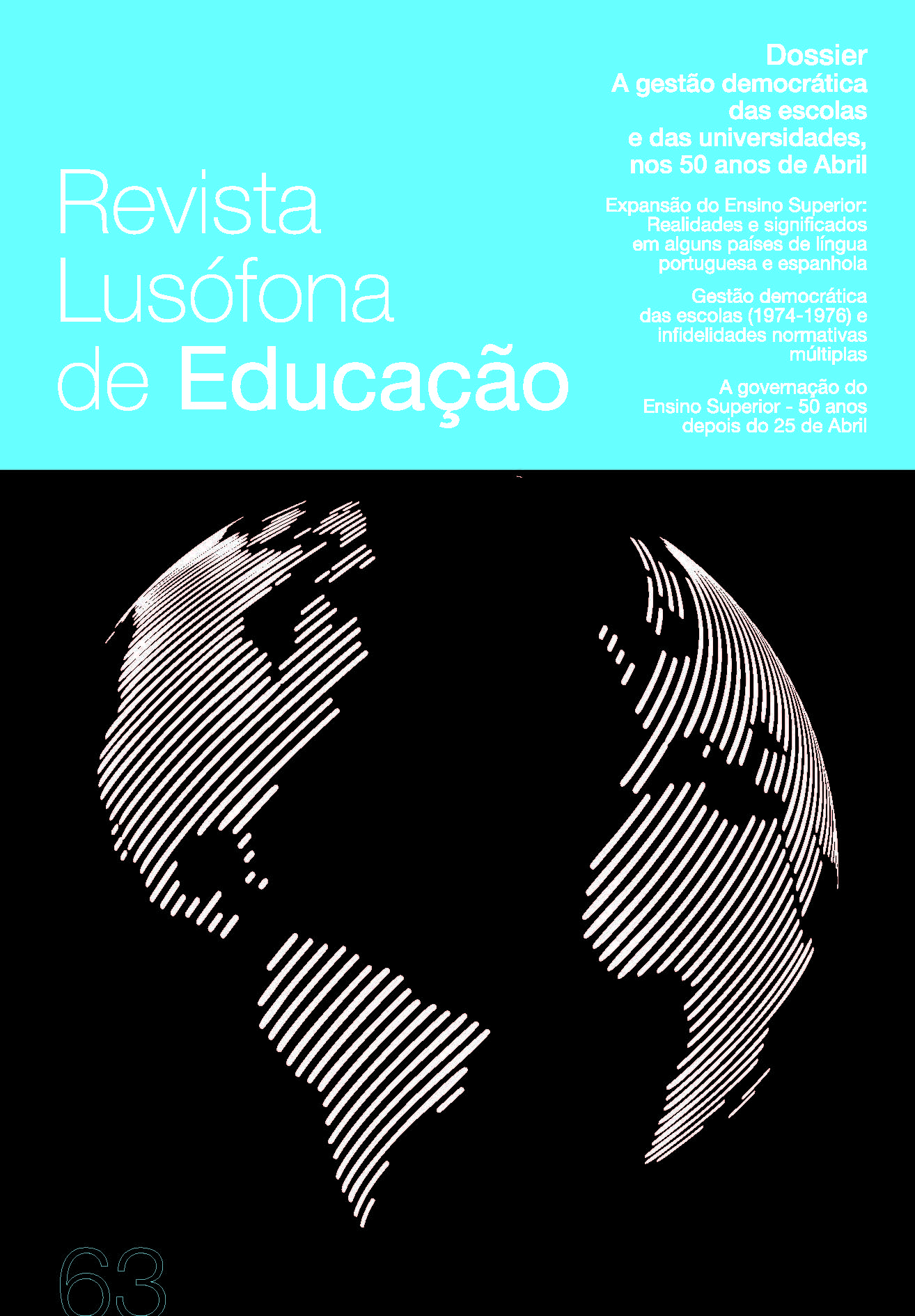Expansão do Ensino Superior: Realidades e significados em alguns países de língua portuguesa e espanhola
Resumo
Nas últimas décadas ocorre uma expansão do ensino superior (ES) na generalidade dos países, traduzida no aumento de número de instituições, de cursos e de estudantes, traduzida numa maior diversificação dos ingressantes. Neste artigo, pretendemos descrever a organização e o processo de acesso ao ES em alguns países de língua portuguesa ou espanhola (Angola, Brasil, Costa Rica, Espanha, Moçambique e Portugal), apontando a legislação e práticas que suportam a sua expansão.
Em particular destacamos as políticas que aumentaram a heterogeneidade da população estudantil, favorecendo a igualdade de oportunidades de acesso por estudantes provenientes de grupos socioculturais
mais desfavorecidos. As conclusões apontam para a existência de estruturas de ES bastante diferentes nos vários países, contudo em todos eles implementam políticas favoráveis ao ingresso dos novos públicos.
Paralelamente as instituições de ensino são incentivadas a implementar medidas que favoreçam a adaptação e sucesso de estudantes que ingressam com perfis diferenciados face aos seus estudantes tradicionais.
Palavras-chave: ensino superior; expansão do ensino superior; acesso ao ensino superior; democratização
do ensino superior.
Downloads
- Os autores e as autoras conservam os direitos de autor, sem quaisquer honorários, e concedem à revista o direito de primeira publicação, com o trabalho simultaneamente licenciado sob a Licença Creative Commons CC-BY - Atribuição 4.0 Internacional, a qual permite que outros compartilhem (copiar e redistribuir o material em qualquer suporte ou formato) e adaptem (remixar, transformar e criar a partir do material para qualquer fim, mesmo que comercial), com reconhecimento de autoria e publicação inicial na RLE;
- Os autores e autoras têm autorização para assumir contratos adicionais separadamente para distribuição não-exclusiva da versão do trabalho publicada nesta revista (ex.: depositar em repositório institucional ou como capítulo de livro), com reconhecimento de autoria e publicação inicial na RLE;
- Os autores e autoras têm permissão e são estimulado/as a publicar e distribuir o seu trabalho online (ex.: em repositórios institucionais ou na sua página pessoal), já que isso pode aumentar o impacto e a citação do trabalho publicado (Veja O Efeito do Acesso Livre).








